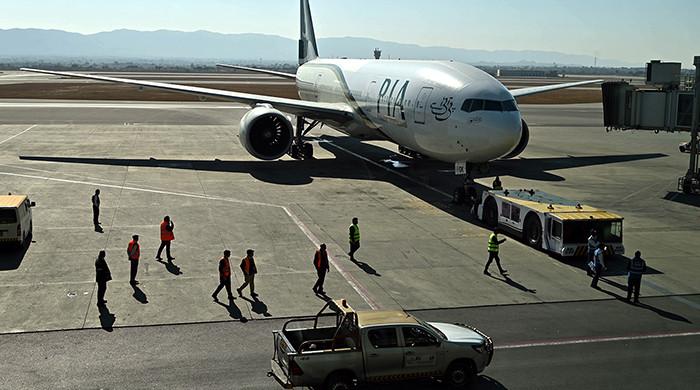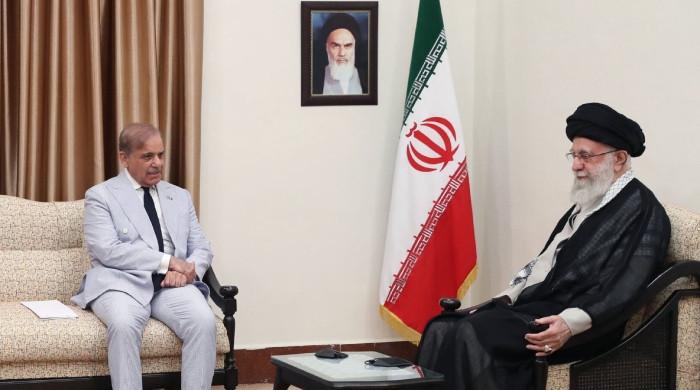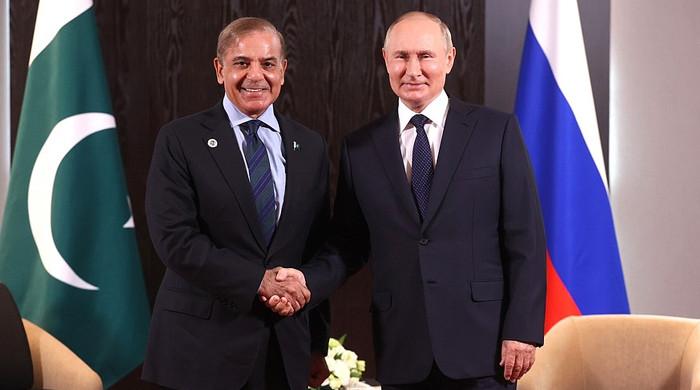DYS 2021: Summit concludes with resolve to fight misinformation, increase digital access
Two-day event hosts panel discussions, workshops by startups, govt ministers, social media influencers, and IT experts
November 14, 2021
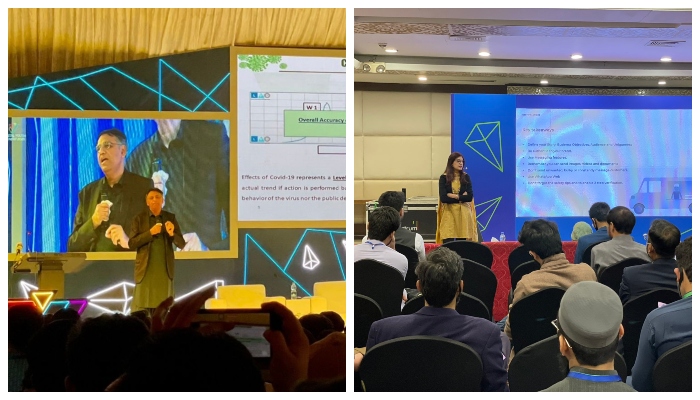
The Khyber Pakhtunkhwa government’s two-day Digital Youth Summit 2021 (DYS ‘21), hosted in Peshawer, concluded today with well-attended panel discussions and workshops addressed by startup founders, provincial and federal ministers, social media influencers, and IT experts from both the public and private sectors.
The crowd swelled on the last day of the summit after a busy first day yesterday, with many more attendees — mostly young men and women — turning up to catch sessions addressed by ‘celebrities’ of Pakistan’s growing digital economy.
Connecting Pakistan to the internet
The day kicked off with a session titled ‘The State of the Internet in Pakistan’, which discussed the various challenges in upgrading the country’s internet infrastructure, with a particular focus on the logistics of upgrading from 4G to 5G.
Young representatives from the erstwhile tribal areas took advantage of the session’s question and answer session to highlight the daily challenges they face (poor internet connectivity and unreliable electricity supply), which force them to remain behind the rest of the country when it comes to internet connectivity. They pushed their demand for better connectivity and accessibility in the merged districts of Khyber Pakhtunkhwa.
Misinformation in the digital age
A panel on 'Misinformation in the Digital Age' was addressed by Imran Ghazali, general manager of the Government of Pakistan’s Digital Media Wing; Shmyla Khan, director Research and Policy at the Digital Rights Foundation; Aisha Sarwari, co-founder of the Women’s Advancement Hub; and Waqas Ali, a communications and digital media expert.
Shan Rehman, Social Development Specialist at the World Bank, who was moderating the panel, noted that misinformation is a global issue, involving both platform design and algorithmic amplification as “masalay wali khabrain” are shared more by citizens.
The panel discussed the need for better filtration of content shared on social media while avoiding the pitfalls of over censorship or throttling free speech.
Differentiating between misinformation and disinformation, describing the latter as deliberate, Shmyla Khan stressed that citizens should "not privilege the state and prioritise legislation as the primary tool to counter misinformation."
“It’s more important to hold social media companies and their algorithms to account,” she stressed. Khan also underlined the need to look at the product design level to see how the spread of misinformation or disinformation could be contained, referring to WhatsApp’s decision to include a ‘forwarded’ label to shared posts, which tell the reader that what they are reading may not be very reliable.
Ghazali said that fact-checking organisations are a possible solution to limiting the spread of misinformation, but noted that they are very slow to react – with the damage being done by the time they are able to fact check a fake news item.
Ghazali also noted that social media platforms should be held to account for not applying their community guidelines uniformly, noting that content on human rights issues in Kashmir is often removed from platforms without rhyme or reason. He argued that these platforms should be truly democratic and should treat all users in all countries by the same standards.
On a question regarding misinformation shared by accounts with large followers, Ghazali said public personalities and media persons have a particular responsibility to be especially careful about the veracity of the content they share.
Shan ended the panel discussion by suggesting that it was a social problem that needed platforms, content creators, government and citizens to work together.
The evolution of commerce in the age of COVID-19
A session on 'Quick Commerce', addressed by a high-powered panel — comprising Swvl Pakistan’s General Manager Faisal Iftekhar (formerly at FoodPanda); Airlift Technologies Co-founder Ahmed Ayub; and Fatima Akhtar, director of government relations at Careem — discussed how the largest transportation startups pivoted to cater to new consumer needs due to the COVID-19 pandemic.
Iftekhar recalled how, during his time at FoodPanda, the company started offering the ‘pickup’ option to customers who still wanted to eat out but were not comfortable inside restaurants due to the pandemic. The company also branched into grocery delivery for similar reasons – to help people stay at home when the pandemic was in full swing.
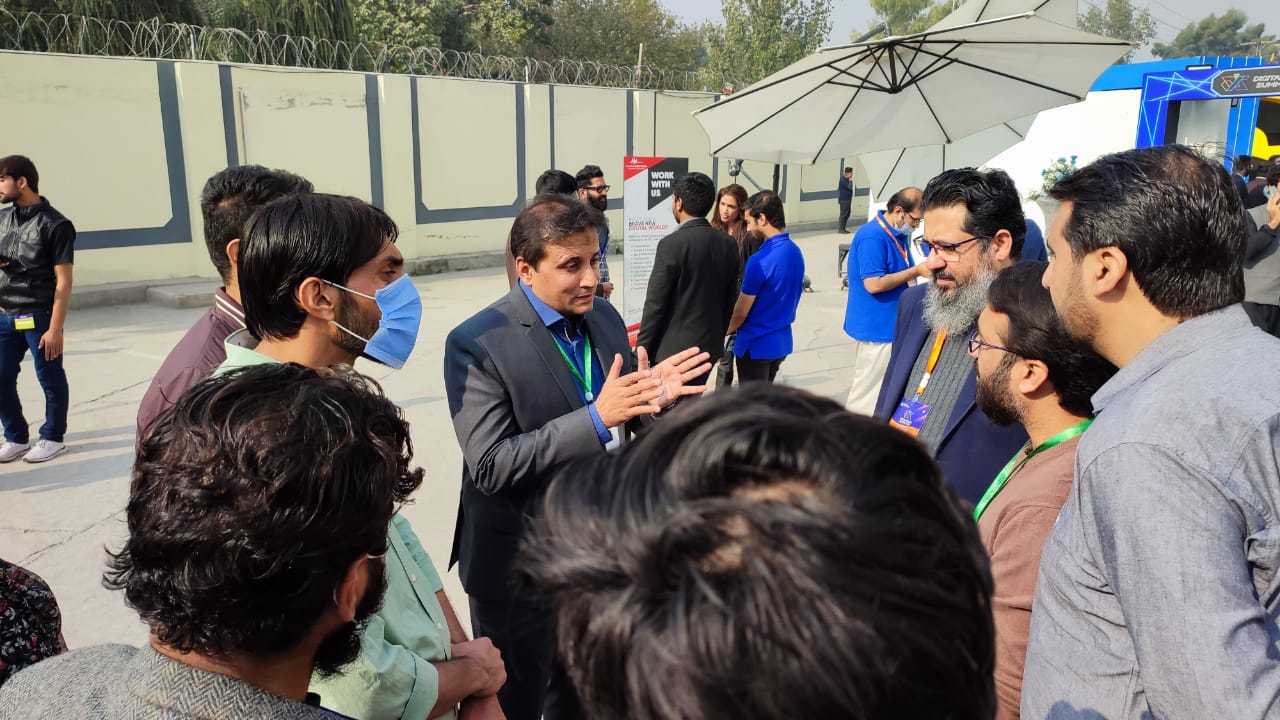
Ayub discussed how Airlift started off as a bus service to solve people’s transportation issues but had to quickly find another problem to solve when the COVID-19 pandemic rendered closed, air-conditioned buses dangerous for public use. He described Airlift’s pivot to quick commerce (defined as delivery in 60 minutes or less) as a switch of focus to solving another type of problem – our need for instant gratification.
However, Ayub was quick to underline that Airlift’s journey is not over yet – it has had a good start, but he sees it as turning successful once it enables a much larger ecosystem to complement and synergise with its core operations.
Akhtar, from Careem, agreed with Ayub that any start-up’s long-term success comes when broader ecosystems develop to support it.
“That part of the puzzle needs more conversations: how do we ensure that the product systemically works and is culturally accepted,” she noted.
Federal ministers make appearance
Federal Minister for Planning, Development, and Special Initiatives Asad Umar also delivered a well-received presentation on how digital tools helped Pakistan navigate the COVID-19 challenge with dexterity.
Describing the pandemic as the "biggest challenge humanity has faced in the last century," Umar noted that it presented a multidimensional challenge to resolve: save lives at the expense of jobs, or vice versa.
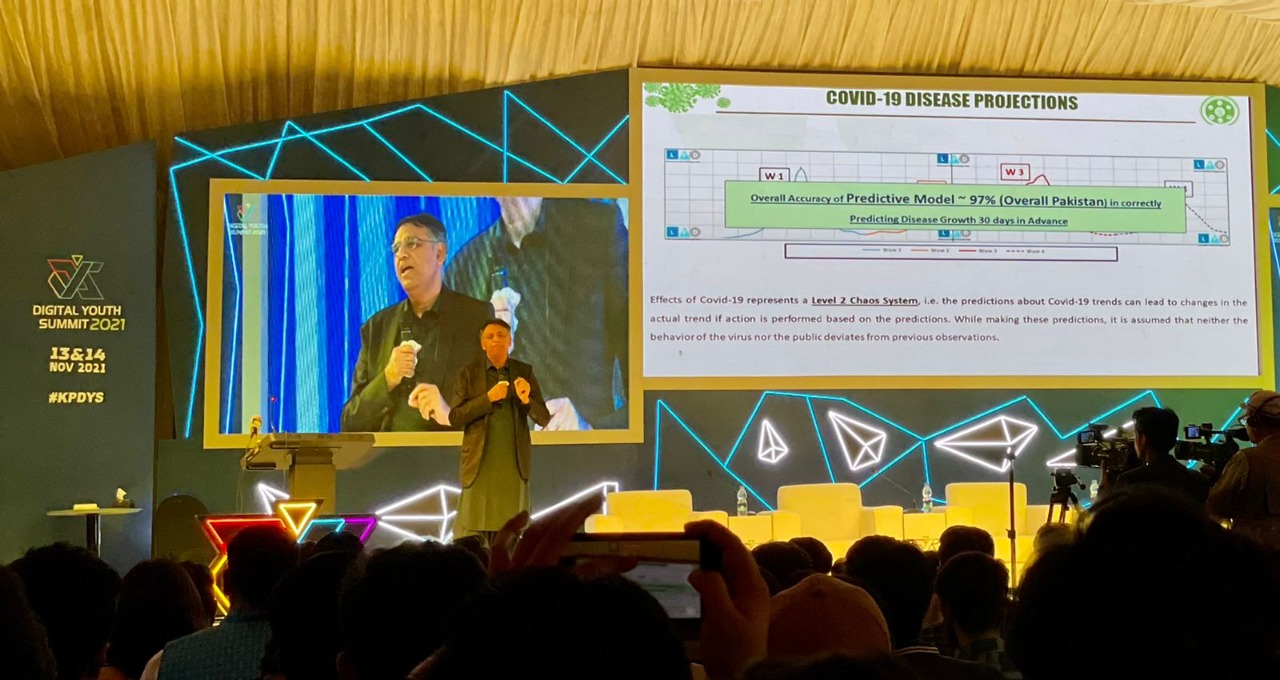
Umar took the audience on the journey taken by policymakers to devise Pakistan’s response to decision making, underlining the role of digital technologies in helping bring together multiple resources to present a consolidated response to the pandemic’s challenges.
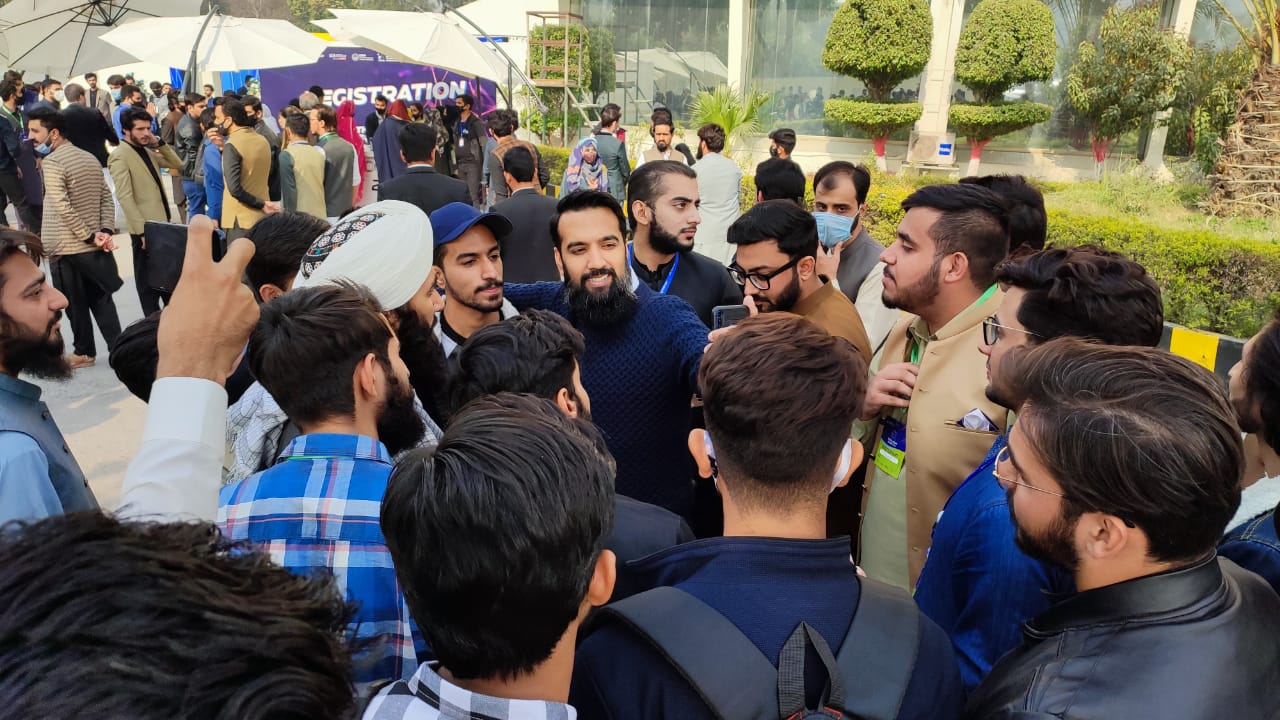
He recalled how the National Information Technology Board (NITB), in the early days of the pandemic, was able to create a system within three weeks that helped connect 4,000 hospitals nationwide so that the central authority, the National Command and Operations Centre (NCOC), had an updated situation report on the availability of vents, oxygen beds etc every two hours.
He then described how the government’s strategy of smart lockdowns relied on digital mapping of Pakistan, collection of infection data from each mapped area, and the identification of disease hotspots by overlaying different data points. This activity allowed the government to lock down targeted areas while allowing the rest of the country to continue as normal.
He also described how predictive modelling using three different datasets and 15 billion data points gave the government enough advance warning that it was able to enhance the oxygen supply chain and avoid a situation like in India, where oxygen shortages caused a massive public crisis.
“The accuracy of the predictive model was 97%, and it was so good that when people were congratulating me in June when the COVID-19 infection graph was actually sloping down, I tweeted that our model was predicting another wave in August, which then actually hit.”
Taking the floor from Umar, Federal Minister for Science and Technology Shibli Faraz commended the team behind Pakistan’s COVID-19 response.

Stating that textile exports alone cannot help the country prosper, he said it is time now for the technology to take the lead.
“Technology is a big equalizer,” he noted. “You do need infrastructure or capital investments to succeed, you only need to nurture the right people.”
‘Your moment has arrived’
Later in the evening, the Chief Digital Officer of the Jang/Geo Group, Dr Umar Saif, addressed the audience to highlight the opportunity presented by the digital age.
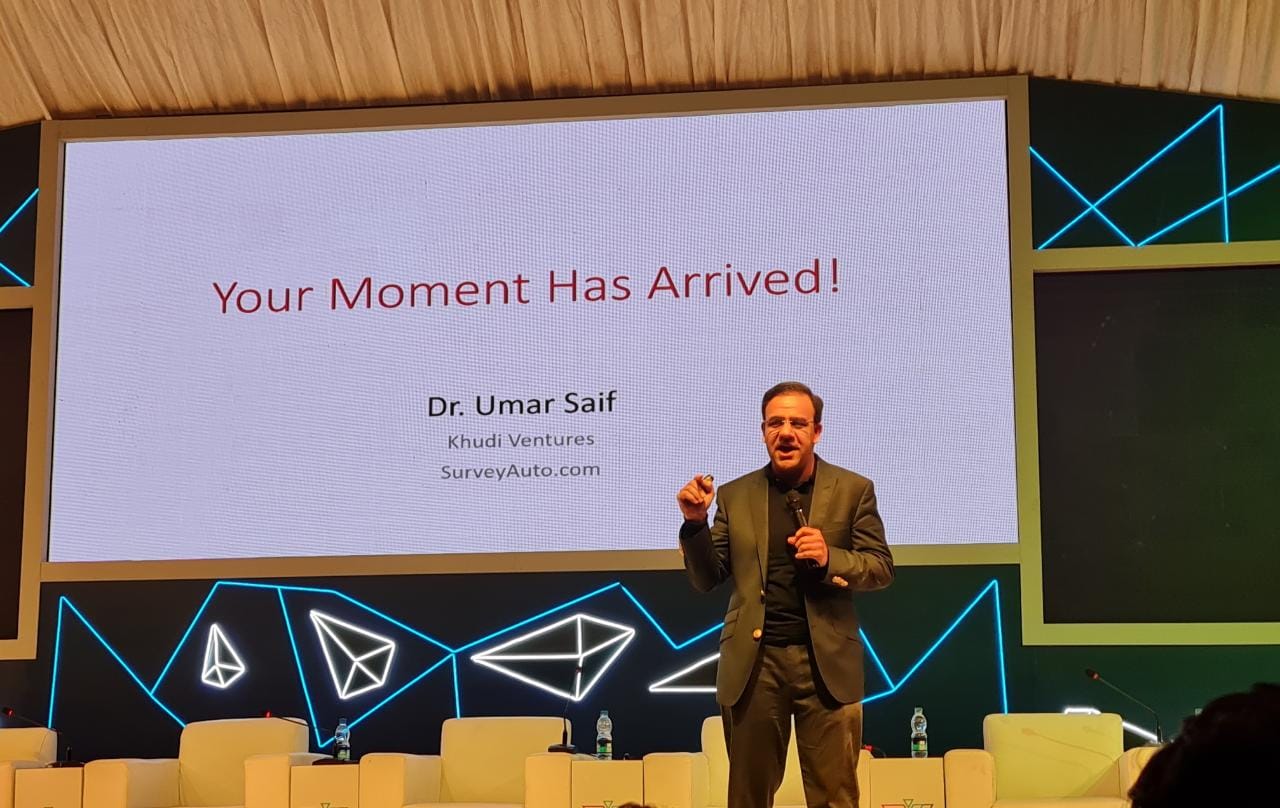
He spoke about how, in the 1940s, you had to be born wealthy or belong to a feudal family to hope to be rich one day. In 1960, you would have had to have the resources to set up a factory if you wanted to climb up the social ladder. In 2021, however, you only need to leverage technology and your ideas to make it.
“A startup doesn't require much capital. With the advent of venture capital, wealth has become democratised and more easily accessible than in the past. To get a traditional bank loan, you had to mortgage your assets, but to raise funds through venture capital, you need only share the risks by providing equity against the funds you raise,” he explained.
He spoke about how technology is eating into traditional industries, including food, travel, health, retail and finance.
“There is a huge opportunity to bring change to everything still operating around the traditional business models,” he said.
“Given the demographics of Pakistan, mobile ownership and internet accessibility, the country is ripe for a digital disruption,” he urged, noting that the most opportunity and room to grow exists in agri-tech, retail, ed-tech and fintech.




